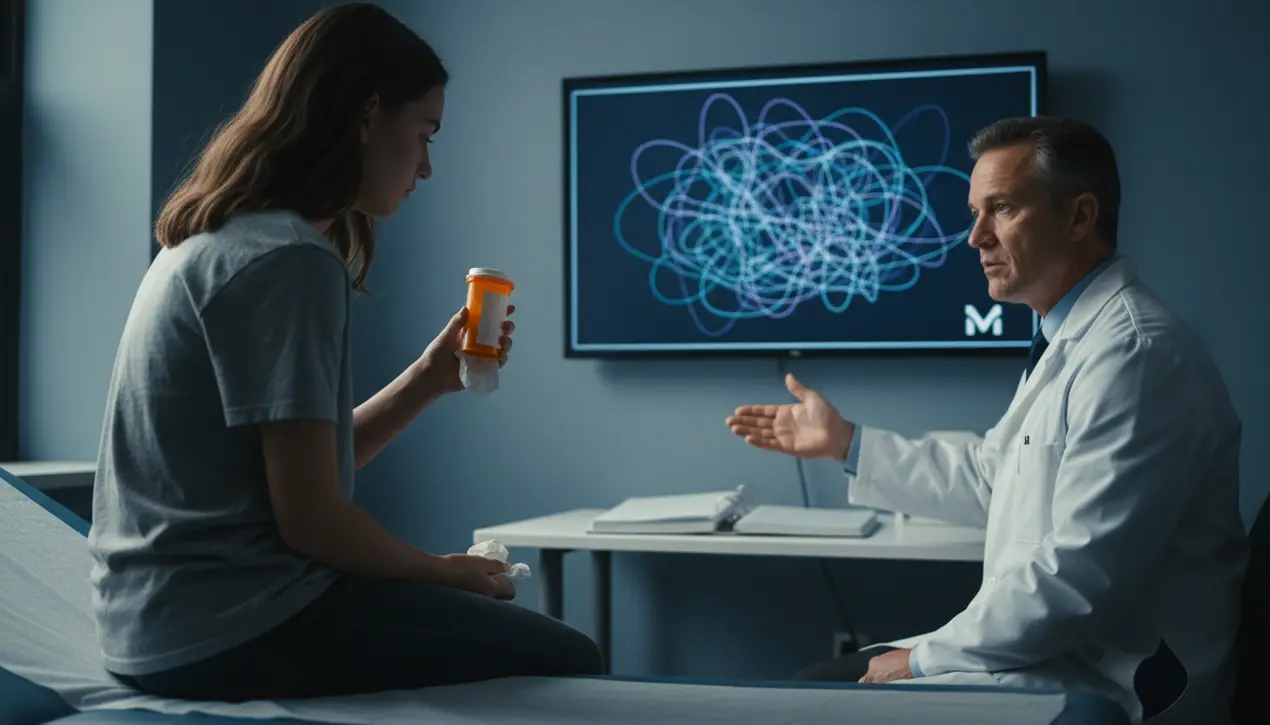
Politicsgovernments & cabinetsPolicy Agendas
MAHA’s war on antidepressants
AN
Anna Wright
7 hours ago7 min read4 comments
The personal has become profoundly political in America's latest culture war, with antidepressant prescriptions now serving as the latest battleground in a deeply polarized national conversation about mental health. What was once a private medical decision between patient and doctor has been thrust into the political arena by the Make America Healthy Again movement, spearheaded by Health and Human Services Secretary Robert F.Kennedy Jr. , whose controversial statements have ignited a firestorm around medications like Lexapro and Prozac.This politicization arrives at a critical juncture—antidepressant use among young people has skyrocketed by nearly 64 percent following the coronavirus pandemic, with teen girls and LGBTQ youth experiencing the most significant increases according to public health data. While these medications can be lifesaving for those with clinical depression, creating stability for millions, they also carry complex realities: approximately half of patients find little relief, while others contend with side effects ranging from emotional numbness to sexual dysfunction, and withdrawal can trigger symptoms from dizziness to severe suicidal ideation in about 15 percent of those who discontinue treatment.The historical context reveals this isn't the first time antidepressants have faced public scrutiny—the 1990s saw similar concerns emerge with Elizabeth Wurtzel's 'Prozac Nation' capturing cultural anxieties about pharmaceutical numbing—but the current political climate has intensified the debate with potentially dangerous consequences. Kennedy's assertions that antidepressant withdrawal surpasses heroin addiction in difficulty and his unfounded claims linking SSRIs to mass shootings, despite evidence showing only 4 percent of perpetrators had any lifetime antidepressant use, risk stigmatizing crucial treatment options for vulnerable populations.The FDA's recent examination of SSRI use during pregnancy further complicates the landscape, though leading medical organizations like the American College of Obstetricians and Gynecologists maintain these medications are safe during pregnancy, emphasizing that untreated depression poses greater risks to both parent and child. What emerges from this complex tapestry is a fundamental tension between legitimate questions about prescription practices and the potential harm of politicizing medical treatments without scientific basis.As mental health struggles among youth reach crisis levels, with reported rates of sadness and hopelessness climbing dramatically, the conversation should ideally focus on expanding access to comprehensive care—including therapy, community support, and medication when appropriate—rather than fueling misinformation that could prevent people from seeking help. The MAHA movement's broader pattern of questioning established science—from vaccines to fluoride—creates a troubling precedent where evidence-based medicine becomes subordinate to political ideology, potentially undermining public trust in healthcare institutions at precisely the moment when mental health services are most urgently needed.
#antidepressants
#mental health
#RFK Jr
#MAHA
#SSRIs
#regulation
#featured
Stay Informed. Act Smarter.
Get weekly highlights, major headlines, and expert insights — then put your knowledge to work in our live prediction markets.
Comments
Loading comments...
© 2025 Outpoll Service LTD. All rights reserved.